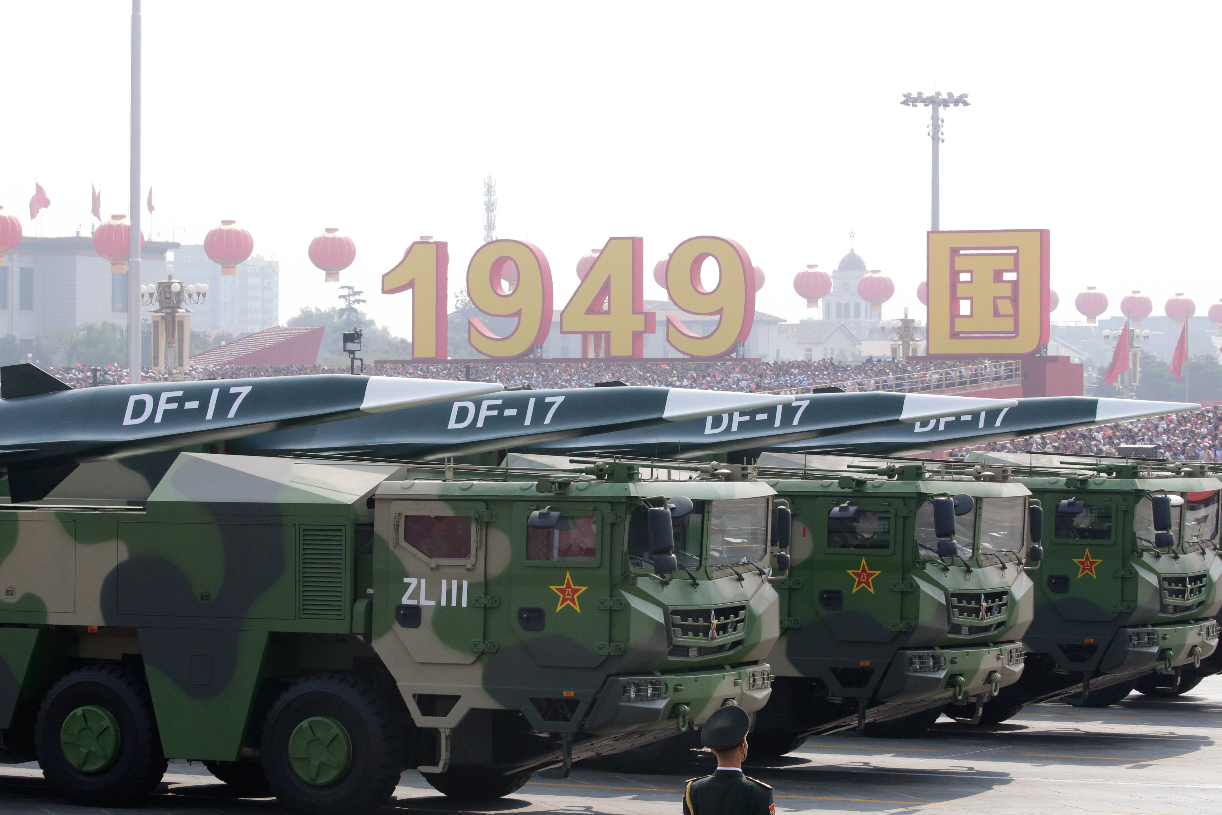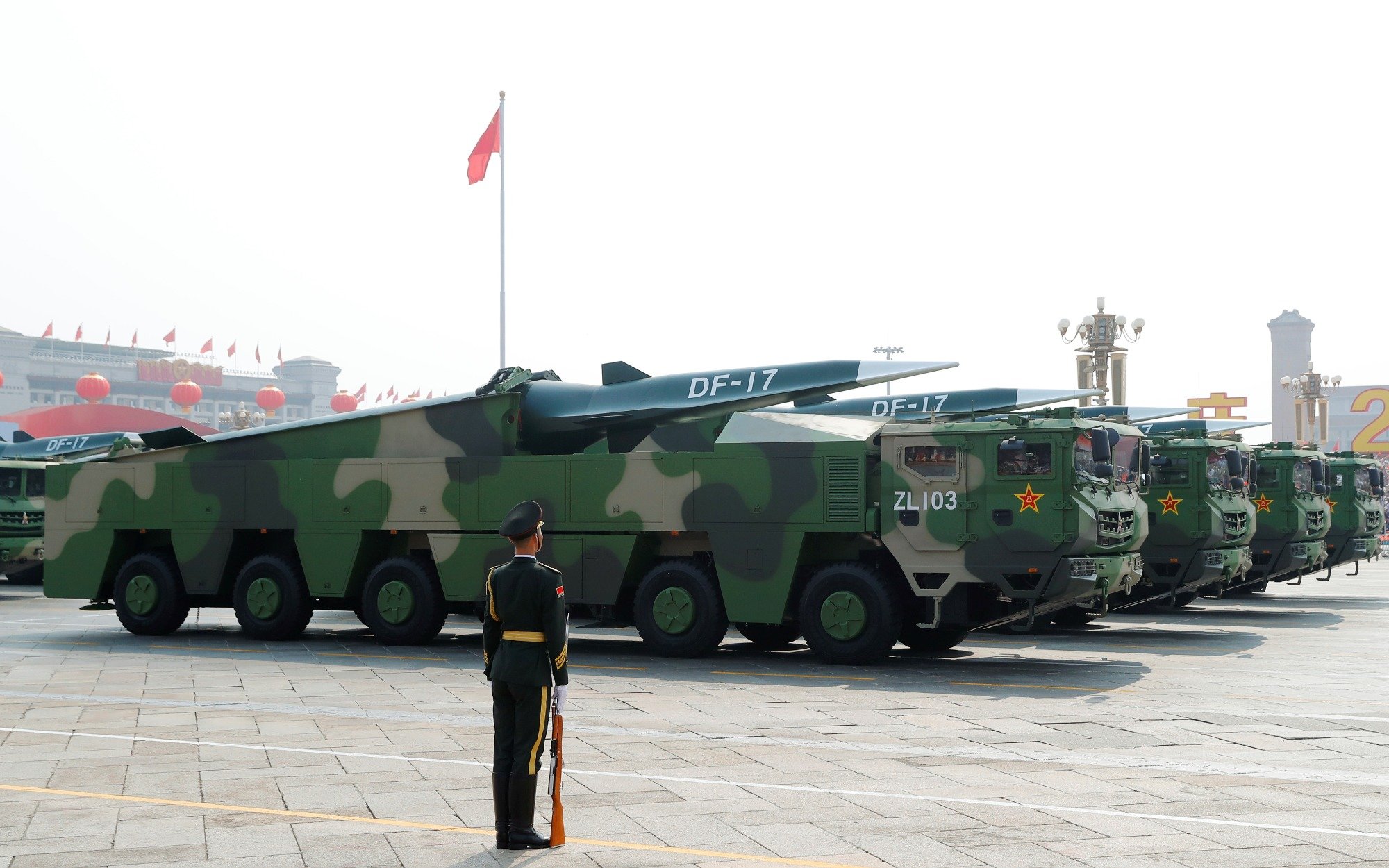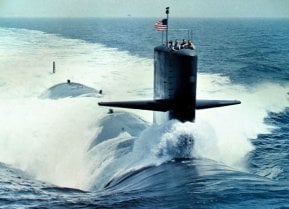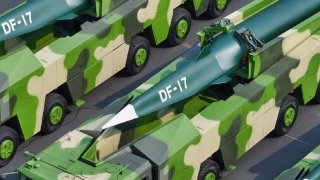China’s Navy Could Surround Taiwan, Experts Warn of Blockade Threat
China’s growing military capabilities make a blockade of Taiwan increasingly feasible. With its powerful anti-access/area-denial (A2/AD) systems, control over the South China Sea, and the world’s largest navy, Beijing could isolate Taiwan, exerting constant pressure and wearing down its defenses.
What You Need to Know: China’s growing military capabilities make a blockade of Taiwan increasingly feasible. With its powerful anti-access/area-denial (A2/AD) systems, control over the South China Sea, and the world’s largest navy, Beijing could isolate Taiwan, exerting constant pressure and wearing down its defenses.

-This strategy mirrors Russia’s pre-invasion tactics in Ukraine, creating uncertainty and exhausting Taiwan’s military readiness.
-By cutting off Taiwan’s connection to the West, China aims to weaken the island’s resolve, hoping to foster political change. U.S. strategists must not underestimate China's willingness and ability to blockade Taiwan as a way to gain control without direct conflict.
China Can Blockade Taiwan
With the passing of China’s recent massive military exercises around the besieged democracy of Taiwan, the questions in Washington swirl around the possibility of whether China could take Taiwan. Specifically, could China blockade the island that the late, great Bruce Herschensohn once described as a “threatened democracy”?
The answer, sadly, is yes. Between China’s robust forward-deployed anti-access/area-denial (A2/AD) capabilities, their near-chokehold on the South China Sea, and their rapidly growing navy, Beijing’s forces absolutely could surround Taiwan.
Even the New York Times agrees with this assessment. Writing in the Gray Lady, David Pierson, and Amy Chang Chien assessed, “The exercises showed how China was improving its coordination of complex operations involving a range of military, coast guard and rocket forces.”
Indeed, Chien and Pierson hit the proverbial nail on the head when they wrote that, “China’s tightening military squeeze is imposing a new normal, creating daily pressure that exhausts the island’s defense forces and increases the incentive for Taiwan to capitulate without a fight.”

The Ukraine Example
This was the same sort of will-they-won’t-they approach that Moscow took in the lead-up to their invasion of Ukraine. Russia conducted a series of intensive military drills that mocked a possible invasion of Ukraine. It confused the West to a point as to when, precisely, Moscow would actually strike.
The same is happening with China’s moves on Taiwan. Plus, every time the Taiwanese launch airplanes or warships to intercept Chinese forces that enter Taiwanese territories, the wear and tear on those systems is immense.
What’s more, these exercises create uncertainty among Taiwan’s leadership, its population, and its military. If they become numb to the presence of large numbers of Chinese forces along their shores, they might lose their edge. That’s likely what Beijing is banking on, too.
China’s Advantages
China currently has the largest navy in the world. Chinese leaders have devised unique ways to use China’s Coast Guard as a frontline force. As noted earlier, China is already basically in control of the South China Sea, though, if the Philippines plays its cards right, there is still a chance for them to prevent this from becoming the new state of affairs.
Thus, China has control over the important southern maritime passes into Taiwan. From its coastline, China can deploy large maritime forces into the Taiwan Strait and surround the island.
Beijing presides over a sizable military that, with the immense wealth of China, could theoretically sustain a blockade of Taiwan for a long time. As this blockade continued, China’s grip on the island would tighten.
Chinese strategists assume that once cut off from their Western partners, the Taiwanese will, over time, become angry with their leadership and seek to change it. Once changed, the new regime in Taipei would be pro-China, and the Chinese would be able to welcome Taiwan as a member of China’s new co-prosperity sphere.
American strategists should not write off that China is seeking to blockade and slowly strangle the island rather than invade it outright and risk being defeated. U.S. policymakers should further remember that China possesses the capabilities, and will, to blockade Taiwan with impunity.
Author Experience and Expertise: Brandon J. Weichert
Brandon J. Weichert, a National Interest national security analyst, is a former Congressional staffer and geopolitical analyst who is a contributor at The Washington Times, the Asia Times, and The-Pipeline. He is the author of Winning Space: How America Remains a Superpower, Biohacked: China’s Race to Control Life, and The Shadow War: Iran’s Quest for Supremacy. His next book, A Disaster of Our Own Making: How the West Lost Ukraine, is due October 22 from Encounter Books. Weichert can be followed via Twitter @WeTheBrandon.
All images are Creative Commons or Shutterstock.
From the Vault
Russia Freaked Out: Why the U.S. Navy 'Unretired' the Iowa-Class Battleships
Battleship vs. Battlecruiser: Iowa-Class vs. Russia's Kirov-Class (Who Wins?)


